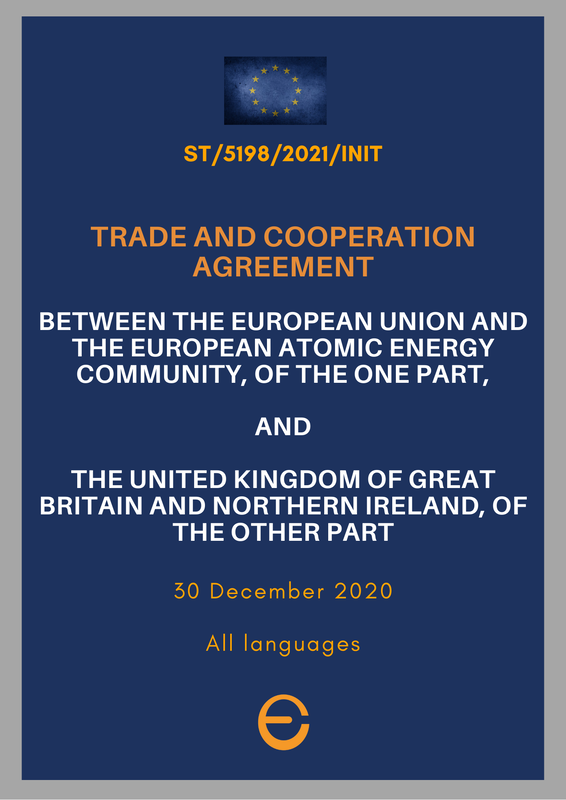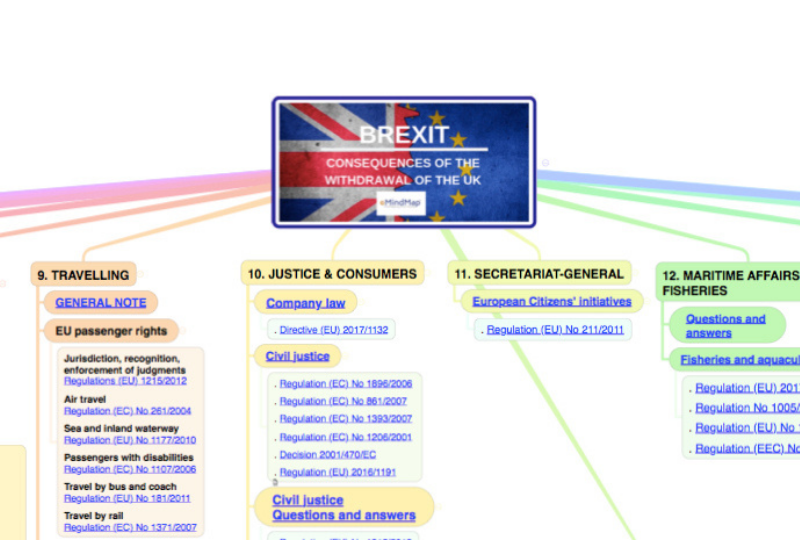Timeline
23 June 2016 - The United Kingdom (UK) held a referendum on their membership of the European Union (EU). The UK voted to leave the EU by 52% to 48%.
29 March 2017 - The UK notified the European Council of its intention to leave the EU, thus formally triggering Article 50 of the Treaty on European Union.
30 January 2020 - The EU ratified the Withdrawal agreement.
31 January 2020 at midnight (CET) - The United Kingdom left the European Union and became a third country. This marked the start of a transition period that lasted until 31 December 2020.
24 December 2020. The EU and UK agreed a trade and cooperation agreement, reshaping their future relations. All 27 Member States approved the agreement on 29 December 2020.
31 December 2020 - The EU-UK trade and cooperation agreement was published in the Official Journal of the European Union. It is provisionally applicable since 1 January 2021.
29 March 2017 - The UK notified the European Council of its intention to leave the EU, thus formally triggering Article 50 of the Treaty on European Union.
30 January 2020 - The EU ratified the Withdrawal agreement.
31 January 2020 at midnight (CET) - The United Kingdom left the European Union and became a third country. This marked the start of a transition period that lasted until 31 December 2020.
24 December 2020. The EU and UK agreed a trade and cooperation agreement, reshaping their future relations. All 27 Member States approved the agreement on 29 December 2020.
31 December 2020 - The EU-UK trade and cooperation agreement was published in the Official Journal of the European Union. It is provisionally applicable since 1 January 2021.
Trade and Cooperation Agreement
|
The United Kingdom’s withdrawal from the EU, the Single Market and the Customs Union, created barriers to trade and cross-border exchanges that did not exist prior to 1 January 2021.
Consequences for public administrations, businesses and citizens were unavoidable, broad and far-reaching, even with the EU-UK Trade and Cooperation Agreement in place from 1 May 2021. Regarding questions in respect of the application of the EU-UK Trade and Cooperation Agreement, citizens, associations and businesses can contact Europe direct Information service. Moreover, the Commission provides for a single entry point where EU companies, trade organisations or non-governmental organisations can submit complaints on barriers to trade in non-EU countries, and about non-EU countries not meeting the commitments, including in the area of sustainable development, they have made in trade agreements. |
EU Legislation related to BREXIT
Below is detailed information on what administrations, businesses and citizens need to do to prepare for change.
Updated on 24 May 2021
Updated on 24 May 2021
Your browser does not support viewing this document. Click here to download the document.
eMindMapping of BREXIT
|
eEuropa prepared a digital neural map with all legal changes following the BREXIT and affecting EU law.
Each node of the map provides you with explanations and the text of the European legislative texts concerned by Brexit. In all EU languages. |
Source: European Union, http://www.europa.eu/, 1998-2024
|
Brussels - Milano - Nice - Tokyo
|
eEuropa Belgium
Avenue Louise, 367 1050 Brussels BELGIUM Bld. Franck Pilatte, 19 bis
06300 Nice FRANCE YONO HOUSE 9-1 KAMIOCHIAI, SAITAMA-SHI, SAITAMA-KEN 〒 338-0001 JAPAN Via S. Veniero 6 20148 Milano ITALY |
All rights reserved - © Copyright eEuropa Belgium 2020-2024



